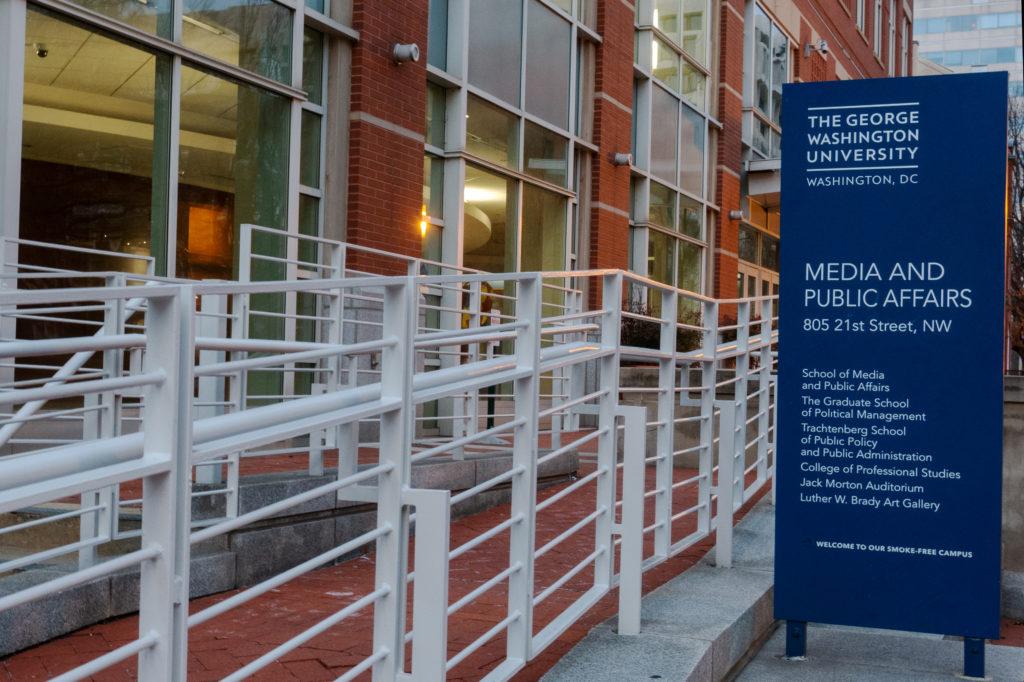The School of Media and Public Affairs announced a science journalist as the Ted Turner Professor of Environmental Media last week.
Eli Kintisch, a science journalist who has worked for PBS Newshour, Vox and Science Magazine, will assume the endowed professorship role and teach a pair of climate communication classes during the fall semester. Kintisch said GW and SMPA have “so much to offer” to combat climate change and teach students how to communicate about it.
“The climate movement has changed a lot since I first covered this, and so it’s really exciting for me personally to be at the forefront of a university that wants to contribute its scholarship and learning to helping train environmental communicators,” Kintisch said.
Officials established the professorship in 2021 after The Ted Turner Endowment Fund, named after the founder of CNN, raised $2.5 million to create the position and support events at SMPA about environmental communication and journalism. John Sutter served as the inaugural holder of the professorship from January 2023 until the end of the Spring 2024 semester.
Kintisch will teach the classes Introduction to Sustainability Communications and Climate Politics, Policy and Media during the fall 2024 semester. He said he is excited to teach the latter class since he has spent his career covering the climate through research and policy.
“That class will allow pretty much any student who’s interested in any aspect of climate change politics, science policy, renewable energy research to understand the key role that media plays in how climate policy and politics evolve,” Kintisch said.
Kintisch said he will also teach Mobile Video for the Planet during the spring 2025 semester. The class will focus on using short-form video journalism, like TikTok, Instagram Reels and YouTube Shorts, to allow a “new generation” of communicators to talk about climate change.
“That class will allow students who are interested in media, who are interested in video, who are interested in TikTok or climate change to explore specifically how these platforms that are really, really popular, obviously, are allowing for real journalism on arguably our planet’s most important issue,” Kintisch said.
Kintisch said working with students and early-career journalists has been one of his favorite parts of his job as a journalist. He has previously served as an adjunct professor at Northwestern University’s Medill School of Journalism and the Rhode Island School of Design and worked with high school video journalists at PBS Newshour.
“That really made me realize that teaching and mentoring early career journalists and communicators could be a really rewarding part of my career,” Kintisch said.





